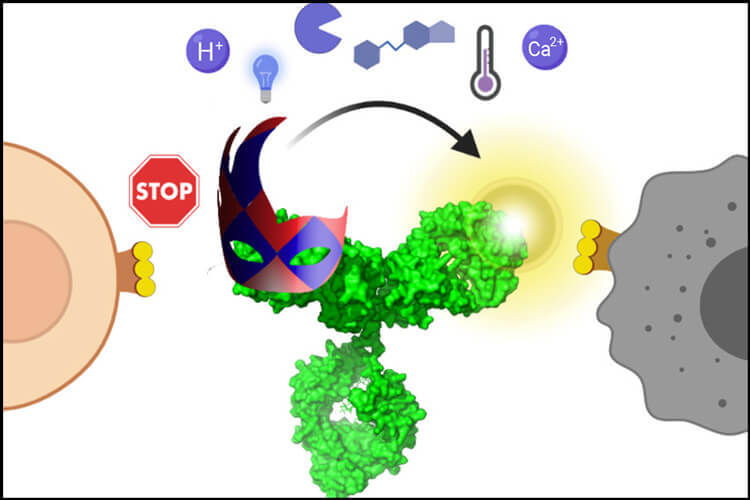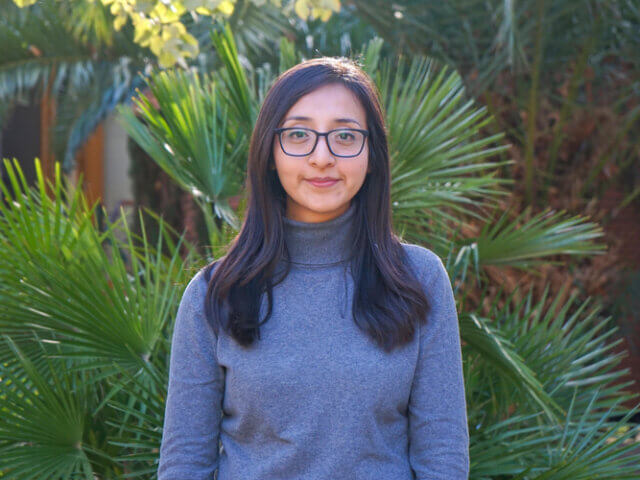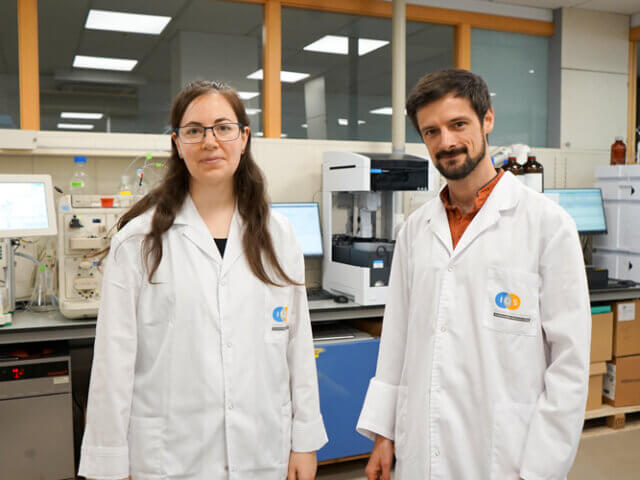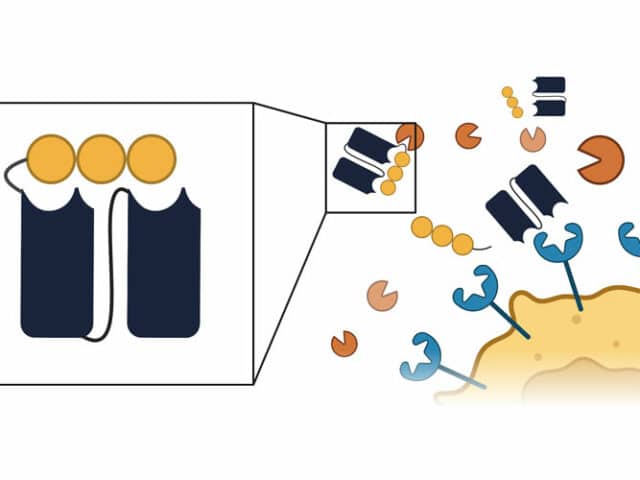Activatable Antibodies to Increase Selectivity for Brain Tumour Therapies

Glioblastoma multiforme (GBM) is the most prevalent primary brain tumour and has the worst prognosis. Although current treatments make it possible to reduce tumour growth initially, patient life expectancy is quite short because the tumours cannot be completely eliminated and they have a great capacity for recurrence.
In the Materials Engineering Group (GEMAT) at the IQS School of Engineering, the team led by Dr Benjami Oller Salvia is working to take on two of the great challenges with GBM therapies:
1. Reaching the invasive front of the tumour by crossing the blood-brain barrier (BBB) and
2. Eradicating cancer stem cells that are resistant to chemotherapy and cause tumour recurrence.
To address the first point, increasing the transport of a gene therapy through the BBB, Dr Oller has taken advantage of one of the prestigious Marie Sklodowska-Curia Individual Fellowships in the EU H2020 programme. In this project, a nanomedicine has been developed with a coating that reduces its entry into healthy cells, increases penetration into cancer cells, and allows their transport through the BBB. On the one hand, this coating is made up of a negatively charged polymer that reduces nonspecific entry into cells. On the other hand, peptides chemically bound to the surface that bind to receptors on target cells facilitate the crossing of BBB and the selective entry of nanomedicine into tumour cells. This part of the project featured advising from Dr Salvador Borrós and participation by various student researchers, notably doctoral candidate Roberta Lucchi.
How can cancer stem cells be eradicated?
To tackle the second great challenge of GBM therapies, eradicating cancer stem cells, Dr Oller received a grant this year from the highly competitive “La Caixa” Postdoctoral Junior Leader Fellowships programme.
One of the main issues with targeting cancer stem cell therapies is avoiding damaging healthy adult stem cells that are essential for our body’s growth and regeneration. To increase the selectivity and effectiveness of nanotherapy for cancer cells, this new project will develop antibodies that only activate in the tumour, as if it were a mask game1.
Activatable antibodies have emerged in the last decade and there are currently two approved drugs along with several others in clinical phases that are based on this principle. However, current activation strategies do not offer sufficient selectivity or they require a great effort of adaptation for each target and type of antibody, among other limitations. Concretely, one of the objectives of this project is to develop an approach that overcomes these challenges.
One of the keys to the implementation of this project is participation by Dr Martí Lecina, with the Cellular and Bioprocess Engineering Group (GECIB) at the UAB and a professor at IQS, Dr Xevi Biarnés with the Biological Chemistry and Biochemistry Group (GQBB) at IQS, and Dr Marta Guerra, Dr Salvador Borrós, and other researchers with the GEMAT group.
“I am very proud to continue contributing to the excellent research that we carry out at IQS that makes it possible for us to obtain prestigious grants such as the Junior Leader grant from La Caixa,” stated Dr Benjamí Oller.
“La Caixa” Junior Leader Postdoctoral Fellowship Grant
The objective of the Junior Leader Postdoctoral Grants awarded by the “La Caixa” Foundation is to help outstanding young researchers to strengthen their lines of research and increase their autonomy. The grant is extremely generous (€292,500), making this program very competitive with a successful application rate of less than 5%. The grant application process takes into account the candidate’s research career, their future potential, and the quality of the project they submitted.
[1] Roberta Lucchi, Jordi Bentanachs, Benjamí Oller-Salvia. The Masking Game: Design of Activatable Antibodies and Mimetics for Selective Therapeutics and Cell Control.
RELATED PEOPLE:
Benjamí Oller-Salvia, PhD
RESEARCH GROUP
Materials Engineering
Chemical & Synthetic Biology for Biotherapies
RELATED PROJECTS
TargetGBM (nanomedicina contra tumores)






